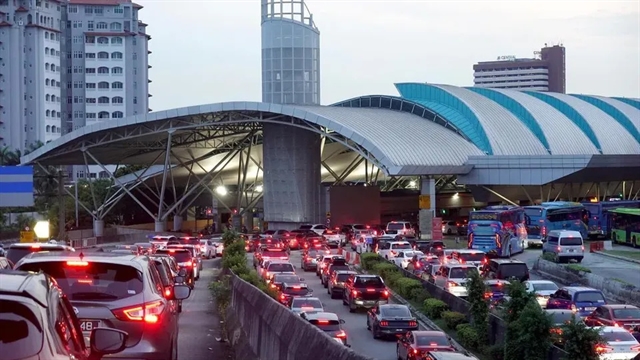 World
World

The Libyan coastguard on Tuesday called for more European aid for its "obsolete" fleet, warning it would not otherwise be able to rescue migrants in the Mediterranean in 2018.
TRIPOLI — The Libyan coastguard on Tuesday called for more European aid for its "obsolete" fleet, warning it would not otherwise be able to rescue migrants in the Mediterranean in 2018.
The appeal came as the UN slammed as "inhuman" the EU’s policy of helping Libyan authorities intercept migrants at sea and return them to "horrific" prisons in the North African country.
Colonel Abu Ajila Abdelbarri of the Libyan coastguard said that by the start of next year’s migration season in spring, "we will not be able to carry out search and rescue missions" in Libya’s coastal waters.
Summer saw a 75 percent drop in the numbers of migrants leaving Libya for Europe compared with the same period in 2016, with 60 per cent fewer dying at sea, the European naval force charged with stopping people trafficking in the Mediterranean said in October.
But UN human rights chief Zeid Ra’ad Al Hussein on Tuesday blasted "the European Union’s policy of assisting the Libyan Coast Guard to intercept and return migrants in the Mediterranean (as) inhuman".
"The suffering of migrants detained in Libya is an outrage to the conscience of humanity," he said.
An EU spokesperson said Brussels was funding United Nations agencies in Libya working to beef up the coastguard and to protect migrants.
"We believe that the detention centres in Libya must be closed. The situation in these camps is unacceptable", the spokesperson said in a statement sent to AFP.
Abdelbarri said the coastguard needed European backers "to provide us with ships and especially to repair the ones we have".
Navy spokesman General Ayoub Qassem also called for greater European cooperation with Libyan authorities, and reiterated criticism of NGOs rescuing migrants near the Libyan coast.
"We are extending our hands to countries, and not to NGOs whose agendas we do not know," he said.
"We call on Europe to cooperate with the Navy and support it."
There are frequent tensions between NGOs running search and rescue operations off Libya and the coastguard, which has an agreement with Italy to stem the flow of departures.
According to the latest figures from the International Organisation for Migration, published on Tuesday, about 157,000 migrants and refugees arrived in Europe by sea since January 1, 75 per cent of them landing in Italy. Nearly 3,000 died attempting the perilous sea crossing. — AFP




